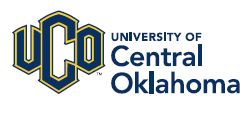Below is a summary of the abstract you submitted. Presenting author(s) is shown in bold.
If any changes need to be made, you can modify the abstract or change the authors.
You can also download a .docx version of this abstract.
If there are any problems, please email Dan at dar78@pitt.edu and he'll take care of them!
This abstract was last modified on March 15, 2022 at 11:41 a.m..

Bacteria eater, a term now known as Bacteriophages. Bacteriophages are viruses that infect bacterial host cells. Our goal was to find a bacteriophage within our environment from dirt. Using a soil sample from a nearby creek, we were able to find our bacteriophage, AreFloNak. Soil is an excellent form to use as a sample because these phages live everywhere. AreFloNak was discovered through the UCO SEA-PHAGES program. AreFloNak was purified with 3 rounds of purification. We obtained a high-titer lysate. The phage genome was extracted and subjected to restriction digest using BamH1 and Clal. We also performed the host range of our isolated phage against Arthrobacter albus. Studying viruses is essential because they are all around us and infect all living things. Why study phages? Phage therapy is a new and exciting method of treating bacterial infections. Phage therapy has shown to be a working alternative form of therapy for antibiotic-resistant bacteria with positive results. Our results indicate that our phage belongs to AU cluster and is closely related to Nivinsha. It did not infect A. albus indicating a narrow host range. We are currently working on annotating this phage genome.
